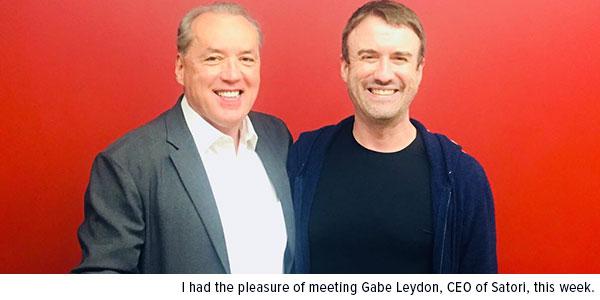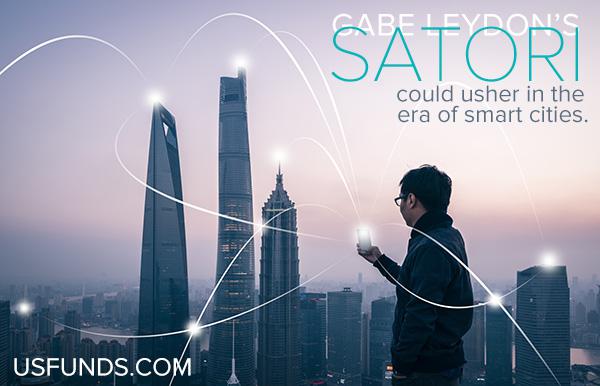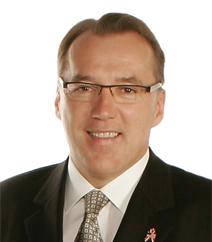From Mobile Games To Smart Cities: A.I. Leads Innovation

Last week I had the privilege of meeting a young tech superstar in Palo Alto, California—Gabe Leydon, cofounder and now-former CEO of mobile game producer MZ. Previously known as Machine Zone, the Sunnyvale-based company is responsible for developing some of the highest-grossing mobile games of all time, including Game of War: Fire Age and Mobile Strike, both of which profited from high-dollar marketing campaigns worthy of some Hollywood films. You might have seen Game of War’s Super Bowl commercial featuring swimsuit model Kate Upton, or Mobile Strike’s, starring Arnold Schwarzenegger.
Gabe, 38, oversaw the creation of these games, among others, which have generated more than a combined $6 billion in revenue in just four years—a stunning accomplishment. His company has succeeded largely by reaching traditional as well as nontraditional players of all ages.
But MZ was only the beginning. Last month, Gabe stepped down as CEO to shift his focus to bigger and better things—cryptocurrencies, artificial intelligence (AI) and his next big project, Satori.
Satori Welcomes You to the Future
An extension of MZ’s real-time streaming platform, Satori is a distributed, decentralized AI “mesh.” That probably doesn’t mean anything to you right now, but Gabe believes it could change the world in a number of ways. In short, Satori aims to aggregate the world’s public information feeds—from Twitter to weather sensors—and distribute them in easy-to-search data structures.
According to Gabe, Satori can process 500 million events per second, a computing speed that’s a little hard to fathom. Paired with the Hedera hashgraph platform, a blockchain-like distributed ledger, it will be able to “read and write the entire internet.”
I know this all sounds incredibly abstract, so let’s look at a couple of examples of what Gabe’s talking about.

For one, Satori can, in real-time, read all 110,000+ tweets that appear on Twitter every second. Not only that, it can analyze and categorize each tweet and, amazingly, translate it into 32 different languages. Let me repeat—this can all be accomplished in real-time. It’s blisteringly fast.
The technology behind the translator, by the way, was developed by MZ so gamers from all over the globe could speak to one another while storming castles in Game of War or deploying troops in Mobile Strike. No doubt you can think of dozens more applications for this technology.
Improving the World—One Parking Spot at a Time
Satori could also lead to the creation of “smart cities.” Today, each part of a city’s infrastructure is isolated, or siloed, from every other system. The traffic lights run separately from the water supply network and electrical grid, and there’s little to no communication between them to increase efficiency. With Satori, the various datasets can all be ingested and computed in one AI-powered, real-time ecosystem. As many as 500,000 live video streams—from any publicly accessible camera—can be funneled into one meta-channel.
According to Gabe, this has innumerable applications. Tired of not being able to find a parking spot downtown? With Satori and technologies like it, parking availability will be a problem of the past. Excited about self-driving cars? Without a dependable, lightning-fast distributed ledger to deliver real-time data, from weather to traffic conditions, it’s hard to imagine their success.
I sense your skepticism. But the truth is that Gabe has already demonstrated Satori’s effectiveness. Two summers ago, the city of Auckland, New Zealand, experimented with Satori, using it to monitor and analyze the movements of its 3,000 buses. This allowed the city to improve bus routes and develop new plans to increase ridership, such as dynamic pricing.
Stay Curious to Learn and Improve
I think it’s only natural for us to question the new and unfamiliar. The ancient Greek philosopher Socrates was famously against writing because he thought it would lead to rampant forgetfulness. In his 1854 classic Walden, Henry David Thoreau dismissed the telegraph.
“We are in great haste to construct a magnetic telegraph from Maine to Texas,” Thoreau wrote, “but Maine and Texas, it may be, have nothing important to communicate.”
No one today has the same grievances toward written language and telecommunications because we recognize that without them, life as we know it now would be impossible. A generation or two from now, we might similarly wonder how we got by without the technologies that underlie advanced systems such as smart cities.
Curious to learn more? I urge you to watch Gabe Leydon’s presentation at the Hedera hashgraph network launch. Also, be sure to visit Satori’s website, where you can read about the company’s own digital token, LIT.
*********
All opinions expressed and data provided are subject to change without notice. Some of these opinions may not be appropriate to every investor. By clicking the link(s) above, you will be directed to a third-party website(s). U.S. Global Investors does not endorse all information supplied by this/these website(s) and is not responsible for its/their content.
Holdings may change daily. Holdings are reported as of the most recent quarter-end. None of the securities mentioned in the article were held by any accounts managed by U.S. Global Investors as of 3/31/2018.
U.S. Global Investors, Inc. is an investment adviser registered with the Securities and Exchange Commission ("SEC"). This does not mean that we are sponsored, recommended, or approved by the SEC, or that our abilities or qualifications in any respect have been passed upon by the SEC or any officer of the SEC.
This commentary should not be considered a solicitation or offering of any investment product.
Certain materials in this commentary may contain dated information. The information provided was current at the time of publication.






 Frank Holmes is the CEO and Chief Investment Officer of
Frank Holmes is the CEO and Chief Investment Officer of 









